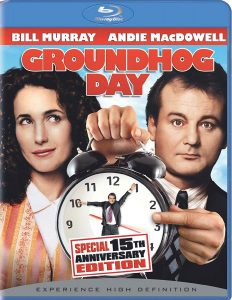Readers of his essays know that Chuck Klosterman has long been fascinated by the idea of the true reality of human behavior. He wrote an essay a few books ago essentially arguing that the only way to truly know a person is to observe them when they don’t know they are being observed.
In any other situation, you’ll get affected behavior. This includes reality TV, of course, which is much closer to scripted TV than it is to reality (even if it’s unscripted, and even if the people are playing themselves, they are still performing for the cameras, and the editing that happens afterward is a form of writing).
Klosterman has taken this interest to a brilliant new place: The science fiction novel “The Visible Man” (November 2011, hardcover), about a man (named Y____ since there are no common men’s names that start with that letter and we are therefore less likely to make associations based on a name) who develops — for all intents and purposes — an invisibility suit that allows him to intimately observe how people behave when they are alone.
Through anecdotal stories that Y____ tells to his psychiatrist, Vicky (the novel’s narrator when Y____ isn’t doing the talking), Klosterman — as is his wont — comes up with a lot of astute observations about modern behavior. In one case, a man spends all night doing several tasks on the Internet, but only one that he is actually invested in: Checking to see if a woman he likes responded to his email. Everything else — reading political blogs, commenting on books he hadn’t read, illegally downloading music — is a time-killer. Klosterman notes that the Internet has allowed us to spend a lot of time doing nothing without feeling like we are doing nothing.
In a similar vein, I love Klosterman’s thoughts (via Y____) about the way we engage with TV serials. He argues that we interact more with TV than we do with reality, which is the opposite of how it should be. TV is designed to be passively observed, whereas reality is designed to be interacted with. Yet we feel like we have more say in TV (we think writers will read viewers’ comments and adjust their narrative accordingly) than we do in reality (we think our vote doesn’t count).
Y____ goes further to note that things people do when alone are things that distract them from being depressed. And while these distractions aren’t true happiness, they come close enough that it’s hard for him to argue against them.
Vicky the psychiatrist is technically the protagonist of the story, and when Y____ isn’t recounting his observations, she is analyzing him. That’s the irony of the title, I think, and also an allusion to the Heisenberg Uncertainty Principal: These people may not know they are being watched; however, all of Y____’s observations are still one degree removed from pure reality, because the observations are being interpreted by Y____ himself.
Initially, I wondered why Klosterman was giving us chapters of Vicky analyzing Y____, because the real groundbreaking elements of “The Visible Man” are Y____’s observations (and indeed, Y____ himself is frustrated by Vicky missing the point when she becomes sidetracked by the science of the invisible suit, Y____’s reason for doing the observing, and so forth). Ironically, the reason for these chapters is that “The Visible Man” needs a narrative thread that can come to a conclusion, something that the individual anecdotes don’t always have. Klosterman notes that fiction requires a structure, whereas reality doesn’t; ironically, “The Visible Man” is at its least interesting when it comes to its structured conclusion. Even Klosterman can’t escape the demands of fiction.

In other words, Klosterman shows he’s human. Still, “The Visible Man” represents a breakthrough in his career. Whereas his only previous novel, “Downtown Owl,” was a good read, it didn’t transcend beyond the quality of his (excellent) pop-culture essays. Here, he tones down the pop-culture references to good effect (for example, he makes a brilliant jab at the way viewers engaged with “Lost” without ever using the word “Lost”). (I’m not saying I’m against pop-culture references [I’m a fan of Nick Hornby’s novels], but — fair or not — they tend to bring the author into the story to the detriment of the story itself.)
I think the addition of the sci-fi element really sets “The Visible Man” apart. The use of a wacky idea to get the heart of what’s real is very much in the vein of Philip K. Dick, an author who Klosterman name-drops early in this book, contrasting Y____’s suit with the one from “A Scanner Darkly.”
Certainly, it’s too soon to say that Klosterman is the writer PKD fans have been waiting for ever since his death 30 years ago; after all, this is his first sci-fi book, and for all we know, it might be his only sci-fi book. But “The Visible Man” certainly puts him on the list of candidates.

